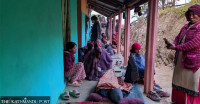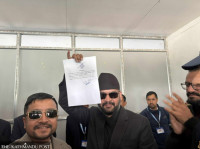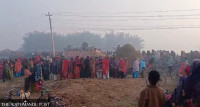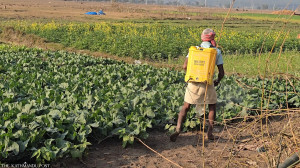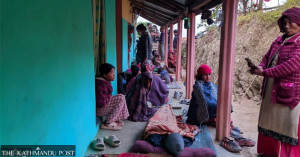Koshi Province
Koshi chief minister writes to Speaker to block resolution motion against him
A majority of provincial assembly members want to remove Karki from the special session of the assembly.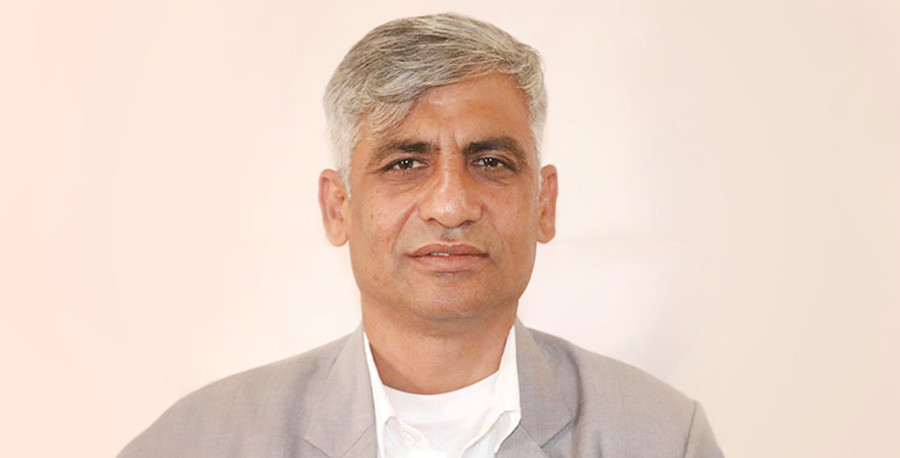
Binod Ghimire
The differences between the ruling and opposition have further widened in Koshi Province after Chief Minister Kedar Karki wrote to the Speaker requesting him not to allow the opposition’s resolution motion to be discussed in the provincial assembly.
The Karki government has been reduced to a minority after the CPN-UML and the CPN (Maoist Centre) withdrew their support. The two opposition parties in Koshi asked him either to prove his majority in the provincial assembly or resign. But he has been defying.
Amid Karki’s refusal to either face the assembly or resign, lawmakers from the UML and the CPN (Maoist Centre) have demanded a special session. Based on the request of more than a quarter of the assembly members, Parshuram Khapung, the province head, summoned the session starting Thursday.
The two communist parties have registered a resolution motion, demanding Karki’s resignation, to be discussed and endorsed by the provincial assembly. However, writing to Speaker Ambar Bahadur Bista, the chief minister requested him not to allow the motion to be presented in the assembly.
“It would be unconstitutional to allow such a resolution motion in the assembly,” reads Karki's letter.
Trapped from two sides, Bista on Wednesday afternoon called a business advisory committee meeting to find a meeting point. But it couldn’t yield any result as both sides stuck to their guns. “I will be working until the meeting to find a way out. I am sure the parties will come to an agreement,” Bista told the Post.
The opposition parties say the assembly has the authority to discuss any issues. It is wrong for the government to try to dictate what the assembly should be doing, they claim. “The sole objective of the special session is to discuss and endorse the motion,” Rewati Raman Bhandari, the UML chief whip in the assembly, told the Post. “It will be discussed and endorsed with a majority vote.”
Endorsement of the motion will establish that the assembly doesn’t have trust in him, say the opposition leaders, adding that they will give him a month to seek a vote of trust. After the support was withdrawn on April 8, a 30-day countdown to the vote of trust began.
If Bhandari's claim is anything to go by, the province head will kick off a new government formation process if Karki doesn’t win the vote of trust within a month.
Karki, who revolted within his Nepali Congress party after it decided to support Indra Bahadur Angbo of the Maoist Centre as a chief minister candidate, became the chief minister with the UML’s support on October 14.
He was appointed chief minister as per Article 168(5) of the constitution. Under this a provincial assembly member can claim the chief ministerial position by producing the support of the majority members.
Individual assembly members, irrespective of their party’s decision, can support the candidates of their choice for the chief minister to be elected as per Article 186 (5). As many as eight Congress provincial assembly members had stood against the party’s decision to back Angbo.
Karki garnered the support of 48 members in the provincial assembly with 93 seats.
However, the political dynamics in the province changed with the formation of a new alliance at the centre on March 4. As per the deal among the five ruling parties, the UML has been given the leadership of the province.
With 40 seats, the UML is the largest party in the assembly while the Maoist Centre has 12. Together, the two parties have more than half the seats in the assembly. As they have withdrawn their support, the Karki government is in the minority.
The two parties have been demanding that he either win a vote of trust or resign. They have also presented a claim for a coalition government.
But Karki maintains that as he became the chief minister as per Article 168 (5), which is the last option for government formation, there is no possibility of a new government. Dismissal of his government will directly lead to the dissolution of the provincial assembly, he claims.
Legal experts, however, say it is moral as well as constitutional obligation for Karki to prove majority after other parties withdrew their support.
Senior advocate Lila Udasi Khanal, who practises law in Jhapa, said Karki cannot say he will neither resign nor face Parliament. "It would be against the parliamentary practice and the constitution to remain in the government without having a majority," he told the Post. There are no constitutional hurdles to form a coalition government as per 168 (2), he argues.




 10.12°C Kathmandu
10.12°C Kathmandu
